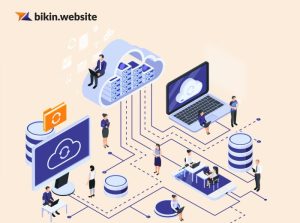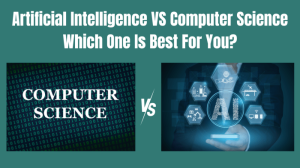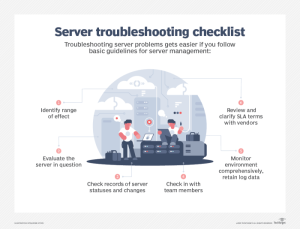
Embark on a journey through the world of mobile computing security tips, where we unravel the importance of securing your devices and share best practices to keep them safe.
From common threats to encryption techniques, get ready to enhance your mobile security knowledge and protect your valuable information.
Mobile Computing Security Tips
Mobile computing security is crucial in today’s digital age, where mobile devices are an integral part of our daily lives. Protecting your data and personal information from cyber threats is essential to prevent unauthorized access and potential data breaches.Identifying common threats to mobile devices such as malware, phishing attacks, and unsecured Wi-Fi networks is the first step towards safeguarding your device.
By understanding these threats, you can take proactive measures to mitigate risks and enhance your device’s security.
Best Practices for Securing Mobile Devices
- Keep your device’s operating system and apps up to date to patch security vulnerabilities.
- Use strong and unique passwords or biometric authentication methods to secure access to your device.
- Avoid connecting to public Wi-Fi networks and utilize a virtual private network (VPN) for secure internet browsing.
- Enable remote tracking and wiping capabilities in case your device is lost or stolen.
Encryption plays a crucial role in mobile security by scrambling data to make it unreadable without the correct key. Utilize device encryption to protect sensitive information stored on your device.
Mobile Computing
Mobile computing refers to the use of wireless technology and portable devices to access digital resources and services on the go. This includes smartphones, tablets, laptops, and other mobile devices that allow users to stay connected and productive outside of a traditional office or home environment.Mobile computing offers several benefits, such as increased flexibility and convenience. Users can access information and communicate with others from anywhere, at any time.
This can lead to improved efficiency and productivity, as well as better work-life balance.When compared to traditional computing, mobile computing provides greater mobility and accessibility. Users are no longer tied to a desktop computer or wired network, giving them the freedom to work or communicate while on the move. Additionally, mobile devices are often more compact and lightweight, making them easier to carry and use in various settings.The evolution of mobile computing technology has been rapid and transformative.
From the early days of basic cell phones with limited functionality, we now have powerful smartphones and tablets that rival the capabilities of traditional computers. Advances in wireless networks, processors, and software have fueled this growth, enabling users to perform complex tasks and access rich multimedia content on the go.
Evolution of Mobile Computing Technology
Mobile computing technology has evolved significantly over the years, driven by innovations in hardware and software. Some key milestones in this evolution include:
- The introduction of smartphones, such as the iPhone and Android devices, which combined phone capabilities with computing power and internet access.
- The development of mobile operating systems like iOS and Android, which provide a platform for running apps and accessing online services.
- The rise of mobile apps, which have revolutionized how we interact with digital content and services on our devices.
- The adoption of cloud computing, which allows users to store and access data online, reducing the need for local storage and enhancing collaboration and sharing.
Computer Security
Computer security is essential in safeguarding sensitive information and preventing unauthorized access to personal and confidential data.
Types of Computer Security Threats
- Malware: Includes viruses, worms, trojans, and ransomware that can infect your computer and steal sensitive information.
- Phishing Attacks: Deceptive emails or websites designed to trick users into revealing personal information.
- Hacking: Unauthorized access to computer systems to steal data or disrupt operations.
- Data Breaches: Occur when sensitive information is accessed by unauthorized individuals.
Tips for Enhancing Computer Security
- Use strong passwords and enable two-factor authentication for added security.
- Regularly update your antivirus software to protect against new threats.
- Avoid clicking on suspicious links or downloading attachments from unknown sources.
- Backup your data regularly to prevent loss in case of a cyber attack.
Importance of Regular Software Updates
Regular software updates are crucial for computer security as they often contain patches for vulnerabilities that hackers could exploit. By keeping your operating system and software up to date, you reduce the risk of falling victim to cyber attacks.
Computer Software
Software plays a crucial role in computer systems, serving as the programs and applications that allow users to perform various tasks and operations. From operating systems to productivity software, software is essential for the functionality of computers.Secure software development is of utmost importance to ensure that the programs and applications used on computers are free from vulnerabilities that could be exploited by malicious actors.
By following best practices in coding, testing, and implementing security measures, developers can minimize the risk of security breaches.
Common Vulnerabilities in Software
- Buffer overflows: When a program writes more data to a buffer than it can handle, leading to potential exploitation.
- SQL injection: Attackers inject malicious SQL code into input fields to access or manipulate databases.
- Cross-site scripting (XSS): Allows attackers to inject scripts into web pages viewed by other users.
- Insecure deserialization: Attackers manipulate serialized objects to execute code remotely.
Tips for Choosing and Using Secure Software
- Update software regularly to patch vulnerabilities and improve security.
- Download software from official sources or reputable app stores to avoid malware.
- Use strong, unique passwords for software accounts to prevent unauthorized access.
- Enable two-factor authentication for an added layer of security.
Computer Systems

In the realm of mobile computing security, understanding computer systems is crucial as they serve as the foundation for all operations and data storage. Let’s delve into the components, importance of system security, and measures to secure computer systems.
Components of a Computer System
- The Central Processing Unit (CPU): Acts as the brain of the computer, executing instructions and processing data.
- Memory: Stores data and programs temporarily for quick access by the CPU.
- Storage Devices: Includes hard drives, solid-state drives, and external storage for long-term data retention.
- Input and Output Devices: Facilitate communication between the computer and the user, such as keyboards, mice, monitors, and printers.
Importance of System Security
System security is vital to protect sensitive data, prevent unauthorized access, and ensure the smooth functioning of computer systems. A breach in security can lead to data loss, identity theft, and financial fraud, highlighting the critical need for robust security measures.
Measures to Secure Computer Systems
- Use strong passwords and enable multi-factor authentication to control access to the system.
- Install and regularly update antivirus software to detect and remove malware threats.
- Implement firewalls to monitor and block unauthorized network traffic.
- Regularly backup data to prevent loss in case of system failures or cyber attacks.
Comparison of Operating Systems in Terms of Security Features
| Operating System | Security Features |
|---|---|
| Windows | Provides built-in security tools like Windows Defender and BitLocker for data encryption. |
| macOS | Known for its strong security architecture, including Gatekeeper and FileVault encryption. |
| Linux | Open-source nature allows for constant security updates and customization for enhanced protection. |
Computers Technology

Computers technology is constantly evolving, with new trends shaping the way we interact with our devices. This progression has a significant impact on computer security, as emerging technologies bring both opportunities and challenges in safeguarding sensitive information.
Artificial Intelligence and Machine Learning
- Artificial intelligence (AI) and machine learning are revolutionizing computer security by enabling proactive threat detection and response.
- AI algorithms can analyze vast amounts of data to identify patterns and anomalies that may indicate a security breach.
- Machine learning models can adapt and improve over time, enhancing the effectiveness of security measures.
Blockchain Technology
- Blockchain technology offers a decentralized and secure way to store and verify data, making it difficult for hackers to manipulate information.
- By utilizing cryptographic principles, blockchain enhances data integrity and ensures the authenticity of transactions.
- Smart contracts powered by blockchain can automate security protocols and enforce compliance measures in real-time.
Quantum Computing
- Quantum computing has the potential to revolutionize encryption methods, posing both a threat and an opportunity for computer security.
- Quantum-resistant algorithms are being developed to protect data from potential quantum attacks in the future.
- Organizations are exploring quantum-safe solutions to ensure the confidentiality and integrity of sensitive information.
Computers Gadgets
Computer gadgets play a significant role in our daily lives, providing convenience and efficiency in various tasks. From smartphones and tablets to smartwatches and fitness trackers, these gadgets have become essential tools for communication, productivity, entertainment, and more.
Security Implications of Using Computer Gadgets
When using computer gadgets, there are several security implications to consider. These devices store personal and sensitive information, making them potential targets for hackers and cybercriminals. Without proper security measures in place, the data stored on these gadgets can be at risk of unauthorized access, theft, or misuse.
- Ensure that your computer gadgets are password-protected to prevent unauthorized access.
- Keep your software and apps up to date to patch any security vulnerabilities.
- Avoid connecting to public Wi-Fi networks, as they may not be secure and can expose your data to potential threats.
- Enable two-factor authentication for an extra layer of security when logging into your accounts.
- Regularly back up your data to prevent loss in case of theft or damage to your gadgets.
Comparison of Different Types of Computer Gadgets in Terms of Security Features
| Gadget Type | Security Features |
|---|---|
| Smartphones |
|
| Tablets |
|
| Smartwatches |
|
| Fitness Trackers |
|
End of Discussion
As we wrap up our discussion on mobile computing security tips, remember to stay vigilant, update your software regularly, and implement the strategies we’ve covered to safeguard your devices effectively.
Answers to Common Questions
What are some common threats to mobile devices?
Common threats include malware, phishing attacks, unsecured Wi-Fi networks, and device theft.
Why is encryption important for mobile security?
Encryption helps protect your data by converting it into a secure code that can only be accessed with the right decryption key.
How can I enhance computer security?
You can enhance computer security by using strong passwords, enabling two-factor authentication, and regularly updating your software.
What role does software play in computer systems?
Software is essential for the operation of computer systems as it provides the instructions for hardware to function.
What are the key components of a computer system?
Key components include the CPU, memory, storage devices, and input/output devices that work together to process and store data.






